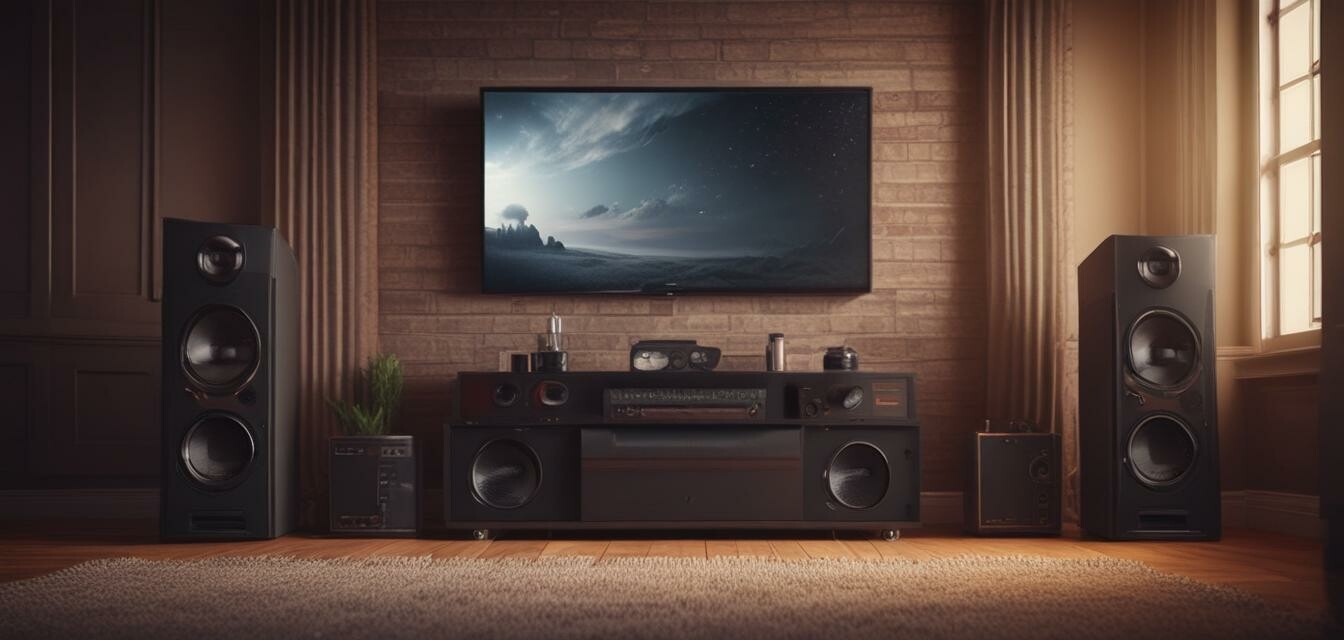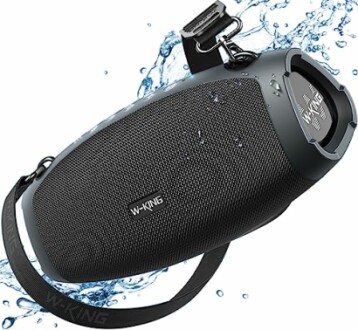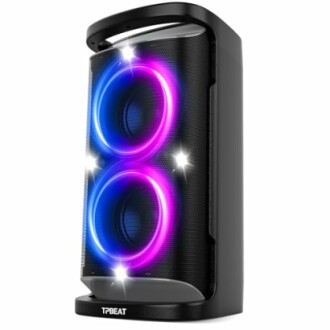
Choosing the Right Subwoofer for Your Home Theater
Key Takeaways
- Understanding the role of a subwoofer in your home theater system.
- Types of subwoofers: active vs. passive.
- Key features to look for: size, power, and connectivity.
- Consider the acoustics of your space.
- Product recommendations for top-performing subwoofers.
When it comes to home theater systems, the subwoofer is often overlooked, yet it plays a crucial role in bringing your audio experience to life. A good subwoofer adds depth, rumble, and clarity to the sound, ensuring that you feel the bass in your chest while watching your favorite movies or listening to music. This guide will walk you through essential factors to consider when choosing the right subwoofer for your home theater setup.
Understanding Subwoofers
A subwoofer is a specialized speaker designed to reproduce low-frequency sounds, typically below 200 Hz. These sounds are crucial for effects like explosions in action movies or the deep bass notes in music. Here's a brief overview of subwoofer types:
| Type | Description |
|---|---|
| Active Subwoofer | Contains its own amplifier and is generally easier to set up. |
| Passive Subwoofer | Requires an external amplifier, providing more potential for customization. |
Key Features to Consider
When selecting a subwoofer, there are several features to consider:
- Size: Subwoofers typically range from 8 to 18 inches. Larger models produce deeper bass but may require more space.
- Power Output: Look for a unit with sufficient wattage to fill your room. Consider models that offer 100 watts or more for better performance.
- Connectivity: Ensure your subwoofer has relevant connectivity options like RCA inputs, speaker-level inputs, or Bluetooth for a wireless setup.
- Frequency Response: A lower frequency response indicates deeper bass sounds. Look for a range that extends below 30 Hz for optimal performance.
Considering Your Space
Your home's acoustics can significantly affect how a subwoofer sounds. Here’s what to keep in mind:
- Room Size: Larger rooms may require a more powerful subwoofer to fill the space.
- Room Shape: Rectangular rooms tend to have better sound dispersion than square rooms.
- Furniture and Fabric: Soft furnishings can absorb sound. Consider how your room's decor may alter performance.
Product Recommendations
Here are two exceptional subwoofers that would complement any home theater system:
W-KING Portable Loud Bluetooth Speaker
This wireless speaker features a 120W peak output, deep bass, and a waterproof design, perfect for outdoor gatherings or indoor parties.
Learn MoreTPBEAT Portable Bluetooth Party Speaker
Offers 160W power with a thrilling light show, extended battery life, and fast charging for unforgettable outdoor experiences.
Learn MoreConclusion
Choosing the right subwoofer can dramatically enhance your home theater experience, providing the deep, rich sound that makes movies and music truly immersive. By understanding the different types of subwoofers, key features, and considering your space, you can make an informed decision. Don't overlook the importance of this critical component in your audio setup!
Tips for Beginners
- Test your subwoofer in various locations to find the best placement.
- Consider the use of room correction technology for optimal sound.
- Don't hesitate to ask for expert advice at your local audio store.
- Remember, it's not just about the brand; performance matters!
Pros
- Enhances audio depth and clarity.
- Wide range of features and price points available.
- Can significantly elevate your movie and music experience.
Cons
- Can be bulky and require space.
- May necessitate additional equipment for optimal performance.
- Sound quality can vary based on installation and room acoustics.
For more information on speaker selection, feel free to explore our other resources such as budget home audio speakers and high-quality cheap subwoofers.

